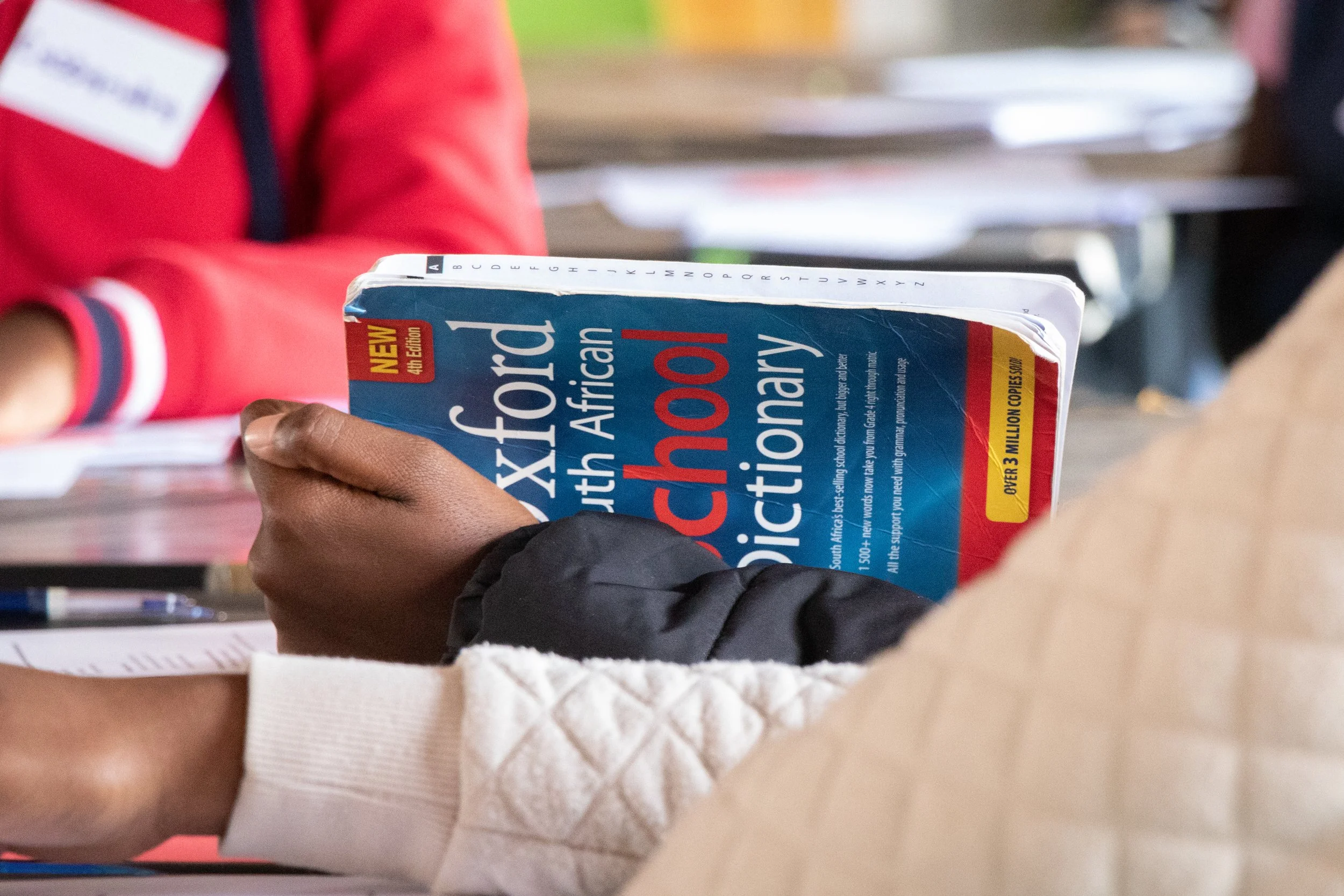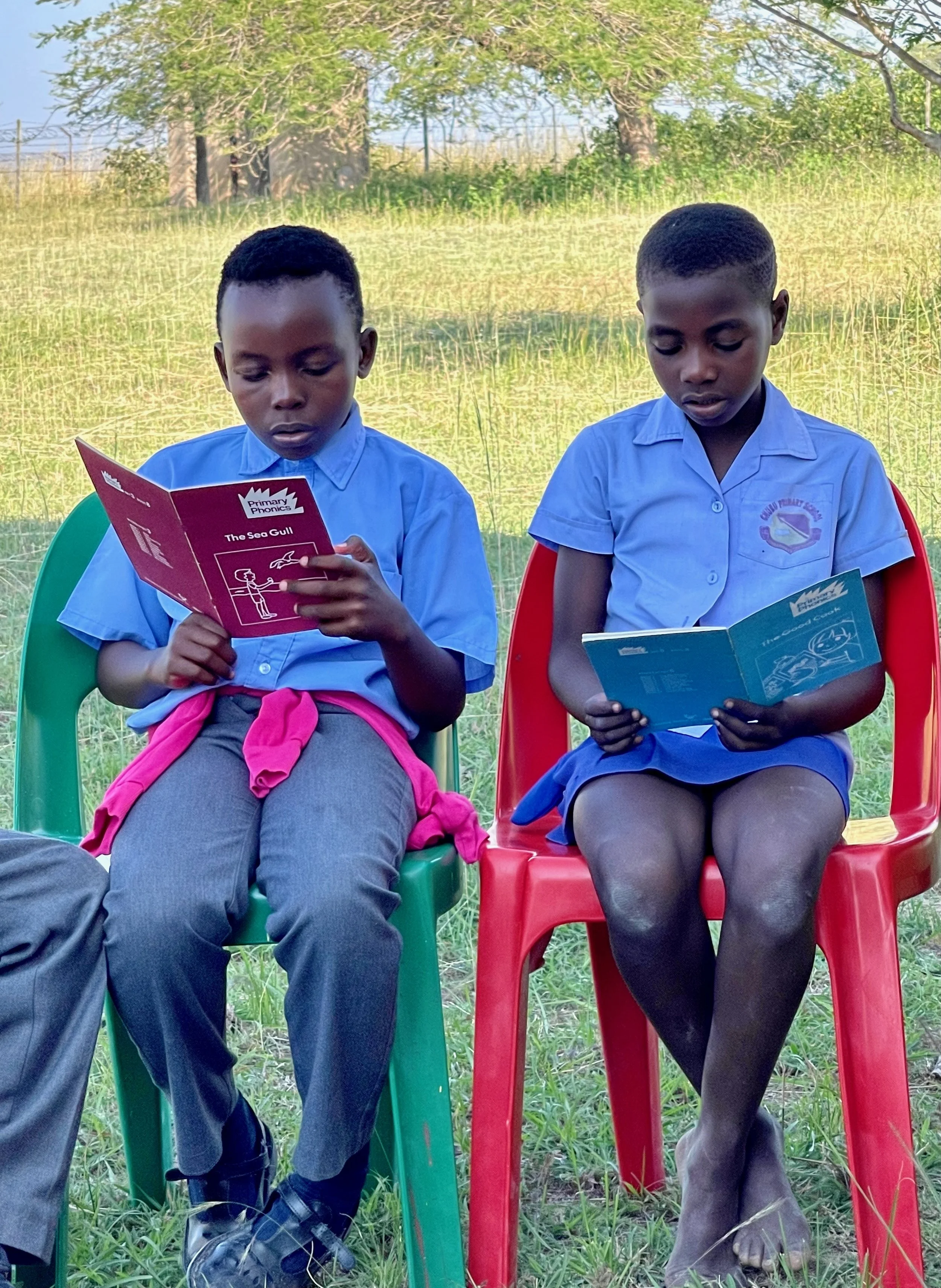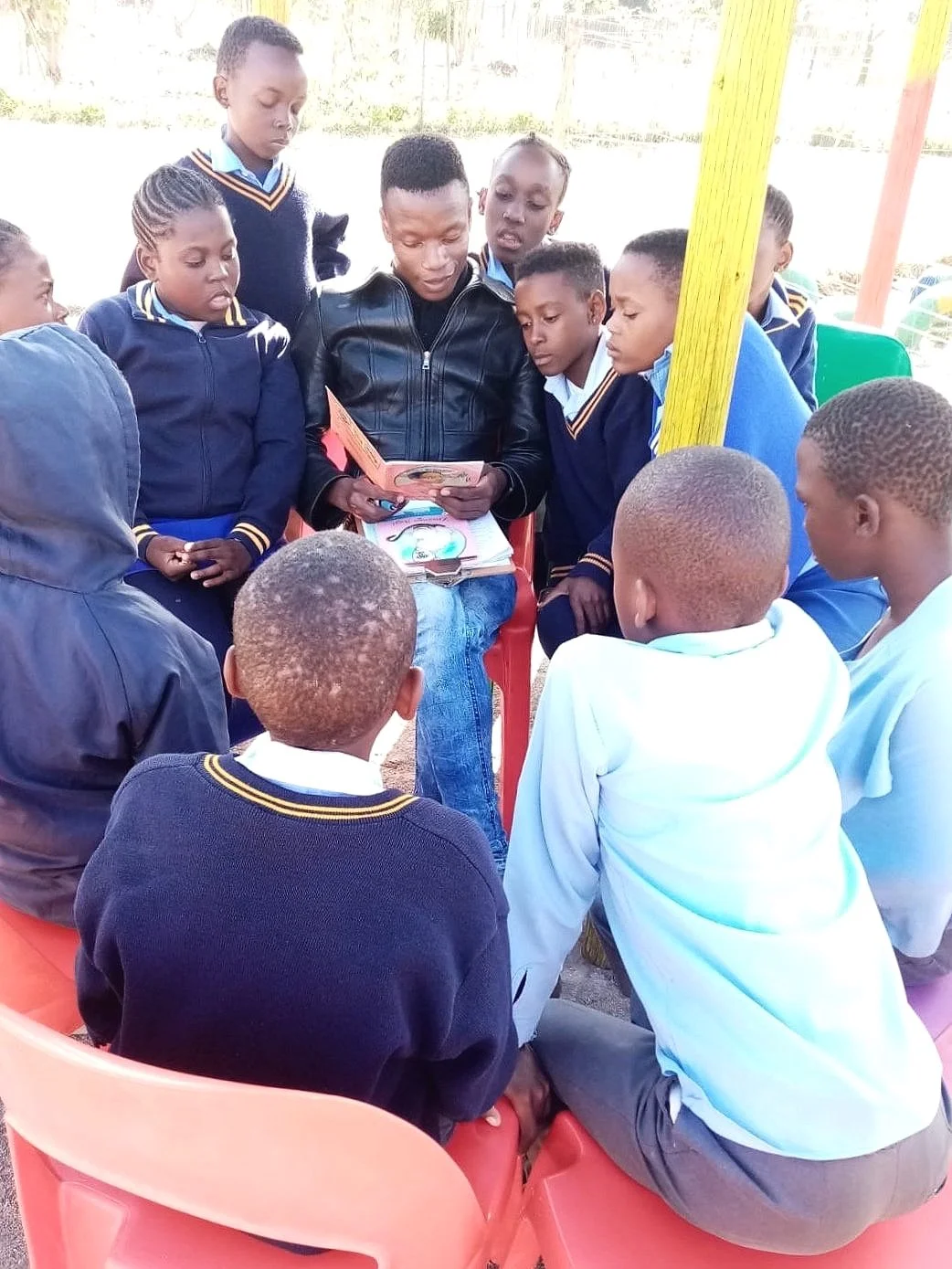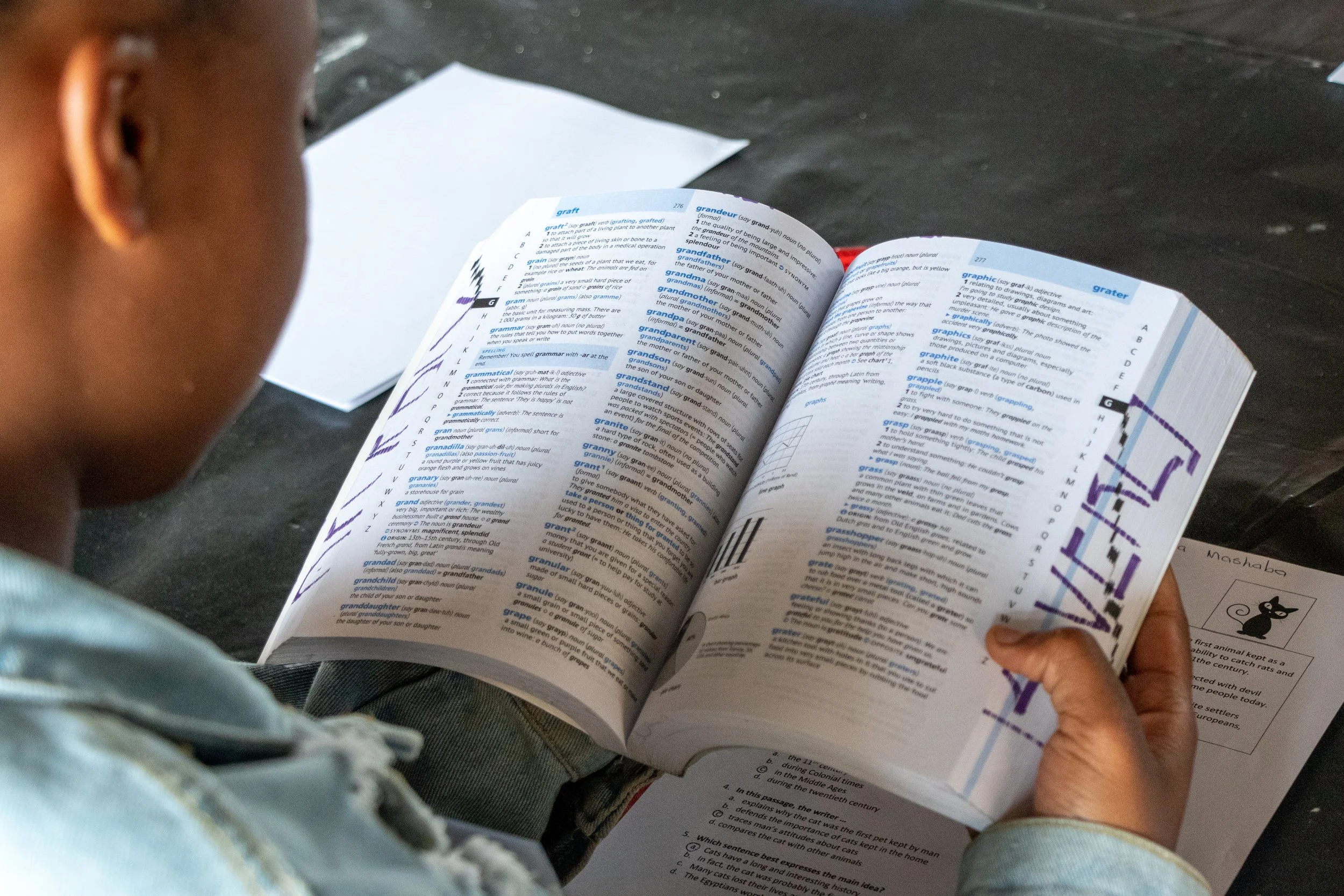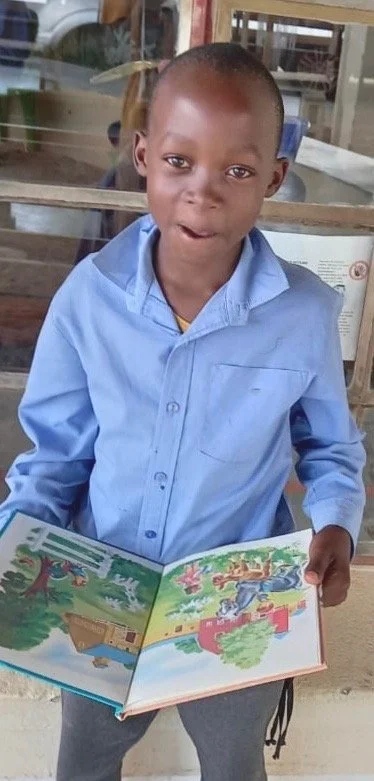Reading and Literacy
“The more that you read, the more things you will know. The more that you learn, the more places you'll go."
– Dr. Seuss
Cultivating a Love for Reading
We are passionate about nurturing a lifelong love of reading. Our classes are engaging, interactive, and designed to make learning enjoyable, fostering meaningful connections between children, their peers, and facilitators.
We know that when children develop strong language skills, expand their vocabulary, and build comprehension from an early age, they gain the confidence and ability to excel in school and beyond.
In South Africa, reading ability is considered to be in a "crisis" state, with a large percentage of children struggling to read for meaning, ranking the country last among participating nations in international reading literacy studies like PIRLS.
This means that a significant portion of South African children are functionally illiterate, with issues like limited access to books and quality reading instruction contributing to the problem.
By equipping young minds with the power of reading, we help open doors to brighter futures.
As more youth embrace learning and broaden their horizons, entire communities benefit—gaining future leaders who will drive positive change, strengthen local infrastructure, and contribute to lasting social and economic growth.
Our New Dawn library is utilized by: participants in the after-school reading group, the Saturday Girls program, the Cubs and Scouts, and Art and Creativity classes.
Low Literacy Rates
According to recent studies, around 80% of Grade 4 students in South Africa cannot read for meaning, indicating a severe literacy crisis.
PIRLS Ranking
South Africa consistently ranks last in the Progress in International Reading Literacy Study (PIRLS) among participating countries.
Impact of Poverty
Children from poorer backgrounds often have limited access to books and quality reading instruction, further exacerbating the issue.
Challenges in Early Reading
Many children struggle to learn basic reading skills in early grades, which impacts their ability to read fluently later on.
Need for Intervention
Experts are calling for targeted interventions to address the reading crisis, including improving teacher training, providing more accessible reading materials, and focusing on early literacy development.

